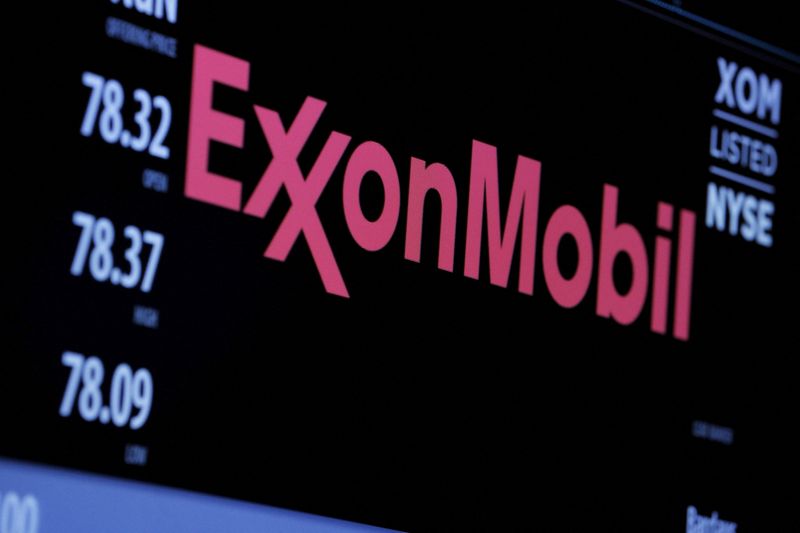By Sabrina Valle
HOUSTON (Reuters) - Exxon Mobil Corp (NYSE:XOM) on Tuesday pledged to cut to zero its net carbon emissions from its global operations by 2050, a step in the direction of rivals minimizing their carbon footprints.
Exxon's 2050 plan, first mulled last year, covers emissions from its oil, gas, and chemical production and from the power those operations consume, so-called scope 1 and 2 targets. It made no commitment for emissions from consumers using those products.
"We are developing comprehensive roadmaps to reduce greenhouse gas emissions from our operated assets around the world," Exxon Chief Executive Officer Darren Woods said in a statement.
The oil major's shareholders last year tossed out three Exxon directors and replaced them with candidates proposed by a hedge fund pressing the company to boost returns and better prepare itself for a low-carbon world. It since has embarked on efforts to address climate concerns, including putting $15 billion toward emissions initiatives over six years.
In December, Exxon pledged to achieve net-zero greenhouse gas emissions in its operations in the U.S. Permian Basin shale field by 2030 and was the high bidder in a U.S. offshore auction of properties for a potential greenhouse gas sequestration hub.
Exxon and Chevron (NYSE:CVX) have lagged rivals in embracing Paris climate goals and uses of their products. BP (NYSE:BP) Plc, Occidental Petroleum (N:OXY), ENI (MI:ENI) SpA and Royal Dutch Shell (LON:RDSa) Plc have pledged to cut emissions from fuels and from products sold to consumers, so-called scope 3 targets.
"Exxon's lack of a scope 3 target reflects a strategy that may leave it behind the curve in growing clean energy sectors," said Will Scargill, managing energy analyst at GlobalData.
Exxon and Chevron plan to increase production this decade, supported by estimates that global demand will rise. Chevron last October pledged to bring emissions from its upstream operations to zero by 2050 and lower the intensity of emissions elsewhere.
Tuesday's pledge puts Exxon in line with the Oil and Gas Climate Initiative (OGCI), an industry group promising to reduce the carbon-emissions intensity per unit of output. Exxon aims to reduce carbon intensity over time by controlling methane leaks, updating equipment and electrification production operations, Woods said.

Even so, the company remains behind European energy producers that have been leading the energy transition with plans to slowly reduce oil production and add renewable wind and solar power to their portfolios.
To keep expanding oil and gas output amid climate pressures, Exxon aims to increase spending on projects dedicated to lower-carbon emissions. That includes development of technologies that are currently not commercial, like carbon capture and storage, hydrogen power and biofuels from algae.